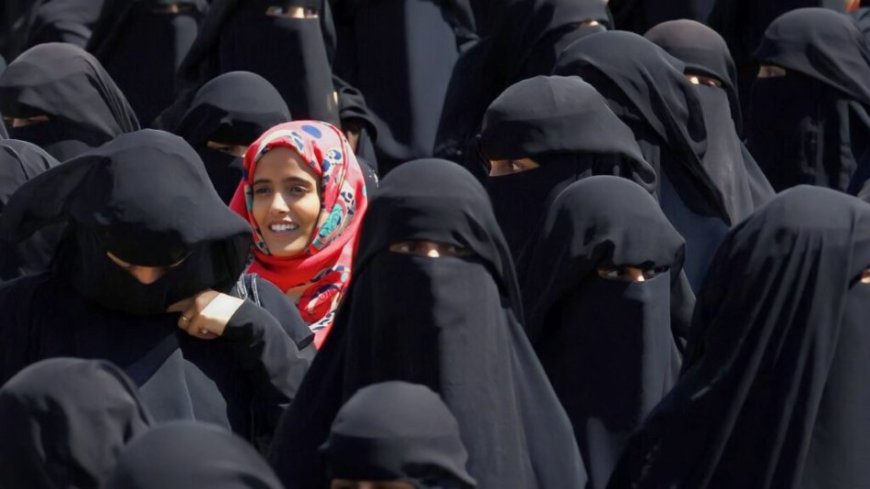Does Gender Matter?
I’ve never liked when few people say, this time just because she is a female and belongs to a tribal community.

If you search for the most trending topics at any moment in time, then undoubtedly you are going to find women's empowerment on the list! If you look at the purpose of any meeting, then at least one-third of them would say it was meant to pay respect to the femininity of a person! If you travel from village to village in India, then surely you will find a Devi temple in each of them!
If you are looking at the population of India, then 48% of them are female! But when you look at the workforce of India, they make up only 25% of the total workforce (in 2022)! According to reports from the Centre for Monitoring the Indian Economy (CMIE), only 10% of working-age women in India are either employed or looking for jobs!
Again, 94% of the total female workers are employed in unorganised sectors (like domestic helpers, construction workers, garment workers, vendor and sales girls, helpers in the food industry, etc.). Only 20% of them work in urban sectors. Most of them hail from the financially backward section of society, and their level of need for money is really critical!
But if you look at the results of various board exams over the last several years, then the pass percentage of girls and their names on the list of top students always outscore boys. You can also look at the results of recent UPSC examinations and see the achievements of female candidates!
But this situation is not limited only to the workforce related to people working in organised or unorganised sectors; the situation is also similar in our Parliament. As per the latest Election Commission of India data, as of October 2021, women represent 10.5% of the total members of the Parliament. Our present Lok Sabha has a total of 78 female members out of 542 members. And our Rajya Sabha has a total of 224 members, out of which 24 are female members.
If you look at the UN report of January 2023, the data shows that women are underrepresented at all levels of decision-making worldwide and that achieving gender parity in political life is far off.
Just 17 countries have a woman head of state, and 19 countries have a woman head of government. Data compiled by UN Women shows that women represent 22.8 per cent of Cabinet members heading ministries and leading policy areas. There are only 13 countries in which women hold 50 per cent or more of the positions of cabinet ministers leading policy areas.
Only 26.5 per cent of parliamentarians in single or lower houses are women. Only six countries have 50 per cent or more women in parliament in single or lower houses: Rwanda (61 per cent), Cuba (53 per cent), Nicaragua (52 per cent), Mexico (50 per cent), New Zealand (50 per cent), and the United Arab Emirates (50 per cent).
A further 23 countries have reached or surpassed 40 per cent, including 13 countries in Europe, six in Africa, three in Latin America and the Caribbean, and one in Asia. At the current rate of progress, gender parity in national legislative bodies will not be achieved before 2063.
The five most commonly held portfolios by women Cabinet Ministers are women and gender equality, followed by family and children affairs, social inclusion and development, social protection and social security, and Indigenous and minority affairs.
In 2019, in India, the new Lok Sabha had the highest number of women MPs, 14 per cent of the total. At present, two of them are cabinet ministers, whereas seven others are serving as ministers of state. Three states in India have female governors at present.
Apart from parliament and governance in our country, women are also holding the lead positions as Chairperson of SEBI, Principal Chief Commissioner of Income Tax, Chairperson of the National Commission for Women, and President of the Indian Olympic Association.
A total of 100 companies have women as their managing directors or CEOs, and the total number of directorships held by women as MDs and CEOs is 109 (according to the NSE data). Above all, at present, the first citizen of our nation and the supreme leader of our democracy is also a woman, Ms Droupadi Murmu.
Our Mahamahim Droupadi Murmu ji, before becoming president, was the governor of Jharkhand state. Before that, she won the 2000 Odisha Assembly Elections from Rairangpur Assembly Constituency and served two terms in the Odisha Assembly between 2000 and 2009. She was in independent charge of the Trade and Transport Ministry from 6 March 2000 to 6 August 2002 during the BJP and BJD coalition government in Odisha and was the Minister of Fisheries and Livestock Development from 6 August 2002 to 16 May 2004.
Before that, she had served as a teacher. And to be truthful, for all these reasons, I’ve never liked it when a few people say, This time just because she is a female and belongs to a tribal community. Both of these factors served as a trump card for her to become the president of India. If you look at her portfolio, then undoubtedly she can leave most of the male parliamentarians and politicians of the present era far behind.
From the day when it was in the news that the new Parliament House was going to be inaugurated by our prime minister instead of our president, really, the question of gender partiality is the only thing that instantly comes to mind!
As per the structure of our democracy and constitution, the president of the nation is considered the leader. The president is at the top of the ecosystem of our democracy. We know that to make a bill into an act or law, it finally requires the authorisation of our President. This is the beauty of our democracy: not a single person, designation, or organisation has been awarded supreme power or all the authorisations. All the organisations work as an ecosystem.
The president of our nation keeps a watch on this ecosystem and keeps an eye on every other organisation of our democracy. The president of this nation stands above all the political parties, genders, and communities! So without any question or doubt, the inauguration of the new Parliament House must be done by our Madam President only!
During most of the election campaigns, our respected prime minister of India puts emphasis on women’s empowerment, the rights of women, and the dignity of women, and he himself coined the phrase “beti bachao, beti padhao”. Even in so many instances, we proudly tag our dear president’s picture and write that we could make a woman our president, whereas the US still can’t achieve this! But the present situations and pictures we are seeing appear quite different from those beautiful lines!
The entire situation reminds me of the statement made by the UN: “At the current rate, gender equality in the highest positions of power will not be reached for another 130 years”. And the question in my mind is converting into a strong belief that, yes, gender does matter!
Bhubaneswar | Email: ipsitadr@yahoo.in | Mob- 8018053395













